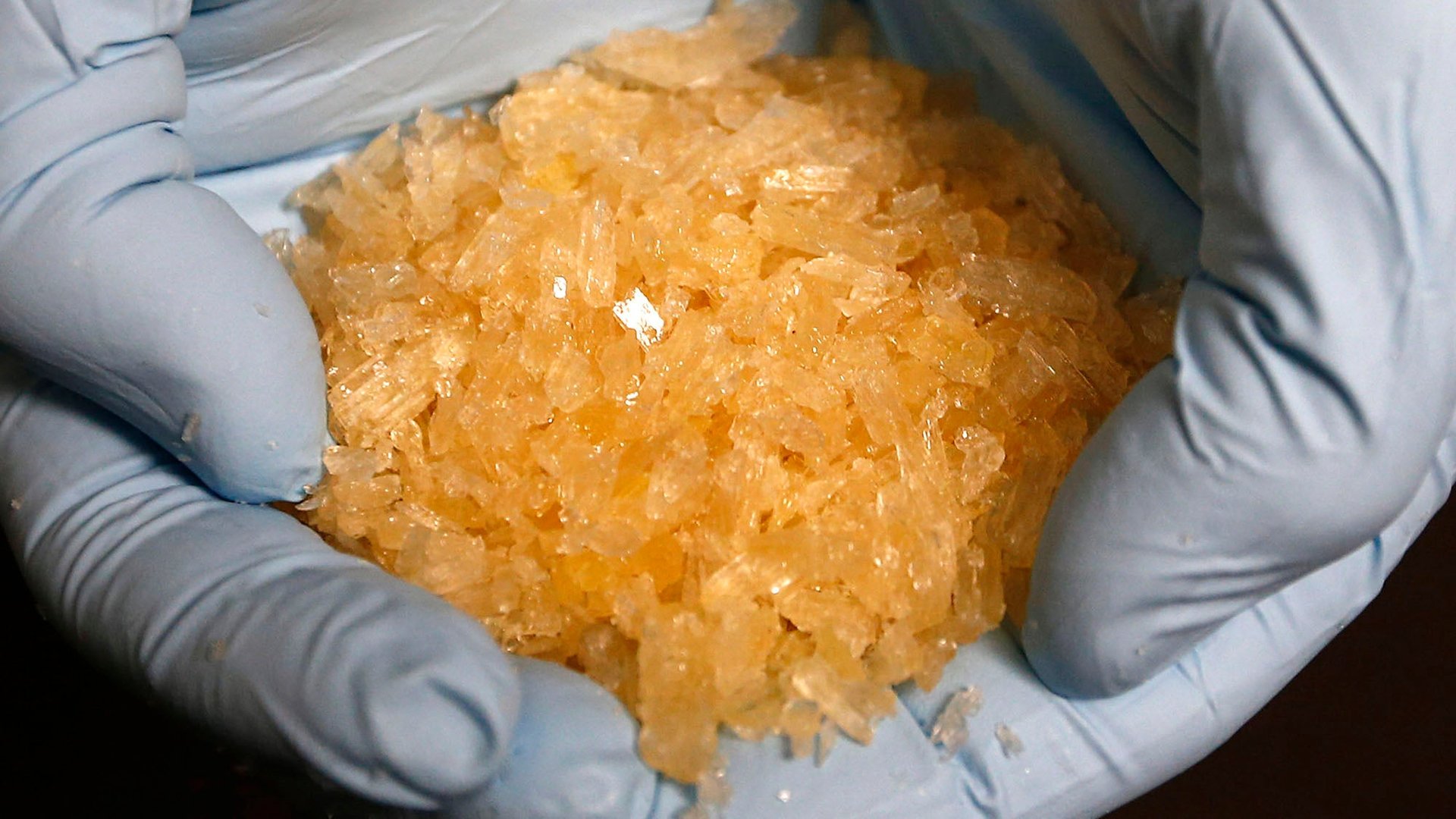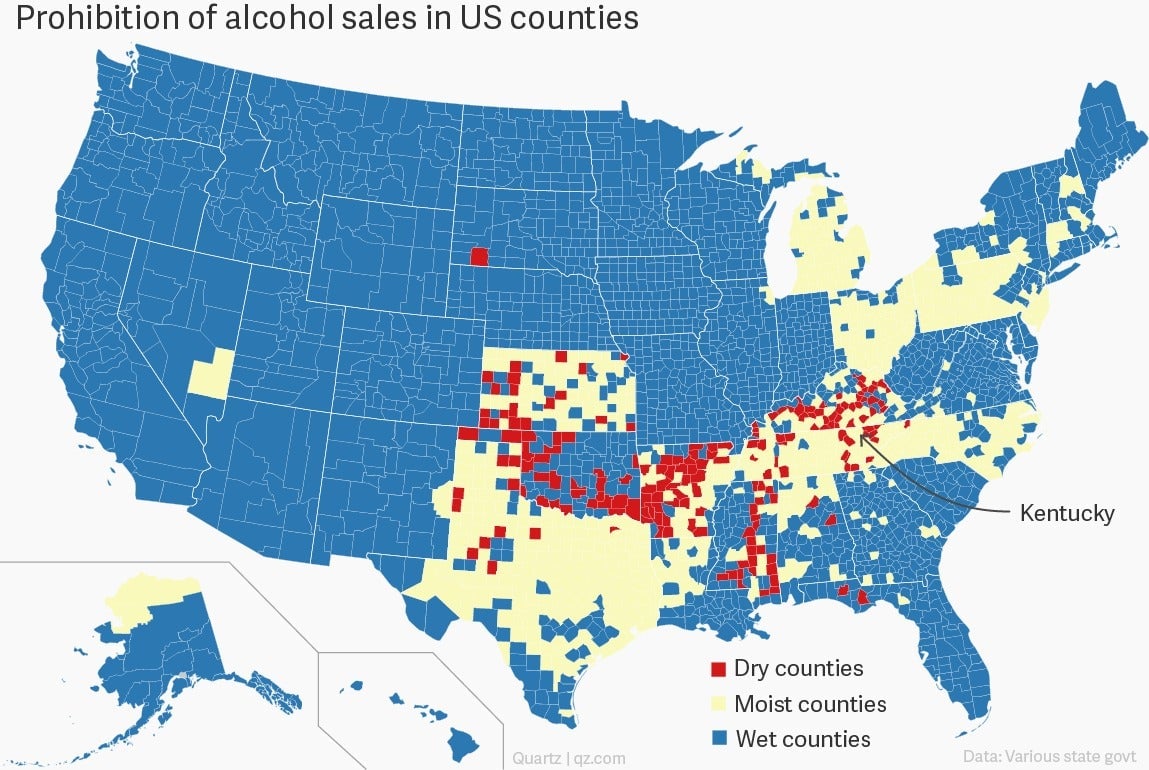Could allowing alcohol sales in “dry” US counties cut the number of meth labs?
Mix economics, drugs, alcohol, and regulation, and you have all the ingredients for quite a party. This combination has produced a provocative new study, in which a group of economists from the University of Louisville show that places that ban the sale of alcohol tend to see more meth labs spring up within their borders.


Mix economics, drugs, alcohol, and regulation, and you have all the ingredients for quite a party. This combination has produced a provocative new study, in which a group of economists from the University of Louisville show that places that ban the sale of alcohol tend to see more meth labs spring up within their borders.
Although the prohibition on alcohol in the US ended in 1933, there are still many US counties that prohibit its sale. Kentucky has a large number of dry counties as well as rapidly rising methamphetamine sales, which attracted the economists attention.

According to a White House report (pdf), in Kentucky “meth lab incidents” increased from 297 in 2007 to 696 in 2009. That rise is despite measures such as electronic tracking of the raw materials needed to produce meth. (According to one estimate, ingredients worth less than $100 can be converted to drugs that sell for more than $20,000.)
When Jose Fernandez and his colleagues looked at the data, they realized that relative to “wet” counties which allow alcohol sales, “dry” counties had twice as many meth-lab seizures (when accounted for population). Based on this analysis, they estimate that if all dry or “moist” counties (where only limited areas within a county are allowed to sell alcohol) were converted to wet counties, the number of meth labs in those areas could fall by more than a third.
Though the economists only draw a correlation, they speculate why such a relationship might exist. First, a ban on alcohol sales makes booze relatively expensive, and by extension makes meth a more affordable alternative. Second, drinkers who get their booze from illegal sources are more likely to hear about other illicit products, like meth, than they would if they bought beer at a supermarket. Third, in dry counties, the punishment for getting caught with drugs is not that much more severe than getting caught with illegal alcohol.
While the data is limited to Kentucky, previous studies show that the spread of meth labs appears similar in other states with a smattering of dry countries.
Allowing alcohol sales produces its own set of problems. However, on balance, are these costs lower to society than those that come with the meth trade?